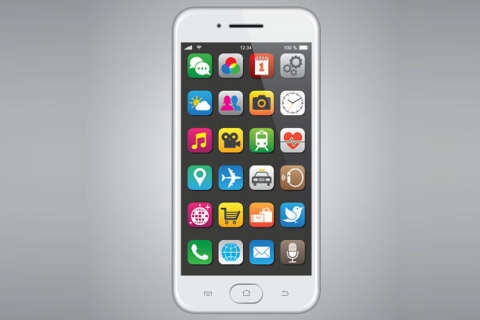Your identity used to be tethered to your birth certificate or your Social Security number. But because of the ways tech and social media titans like Facebook prefer to secure accounts, that’s changed. Now, your cellphone number is the key — and it’s raising concerns.
As Axios technology editor Scott Rosenberg reports, the current overreliance on cellphone numbers as a means of unique identification actually makes them a less effective and secure authentication method.
Predictably, Facebook is a major part of the problem, despite Mark Zuckerberg’s promises that the tech company will do more to protect users’ privacy.
And in a strange twist, the more important your phone number becomes as an ID, the less willing people are to share it for it’s actual purpose: communication.
“The problem with Facebook is they’ve set it up in a way that once you have given them your phone number, other people can find you by typing your phone number into Facebook,” Rosenberg told WTOP. “And thus taking this number that you’ve given them only for the purpose of securing your account, and suddenly you can be looked up, and you didn’t necessarily know that when you gave them the information.”
“Maybe it doesn’t matter to you — but maybe it does.”
In response, Facebook has been pointing users to a setting that lets people control how widely they can be located or searched for via phone number. Which can be narrowed by limiting it only to “Friends” but not totally eliminated.
“That means, probably, you’re not going to have your privacy heavily violated but you’re still in a situation where, if somebody uploads their contact list, as people do when Facebook says ‘We’ll help you find your friends’ … If the holder of (your friend’s) account didn’t want to be identified, that could be a problem,” Rosenberg said.
What then do we do with Social Security numbers, which people give out less and less as the years roll on? Is that number less secure?
“A Social Security number itself … was never intended as a national ID, and yet it’s kind of become that, and we find ourselves in this weird position of needing to keep it secret while also providing it to various agencies from the IRS to banks and health care providers,” Rosenberg told WTOP.
He said he doesn’t think a person’s phone number is about to replace their Social Security number, but it will hit a similar ambiguous status.
“On the one hand, we’re going to feel the desire to protect it and to keep it secret, but on the other hand we’re going to need to use it because it’s a phone number — you want people to call you,” Rosenberg said.
That means the same uneasiness surrounding the secrecy of our Social Security numbers could spread to our phone numbers.
“The problem is, we now are using our phones as keys, and the phone is also vulnerable,” Rosenberg told WTOP. “It gives us one more reason to look at the phone and ask: What have you become?”
If you really want to keep your phone number private, you can sign up for a digital call service, such as Google Voice, that allows you to select a new dedicated phone number to make calls and send messages.
Here’s an article that explains how to sign up for Google Voice. There are other services out there, too.
WTOP’s Veronica Robinson contributed to this report.






